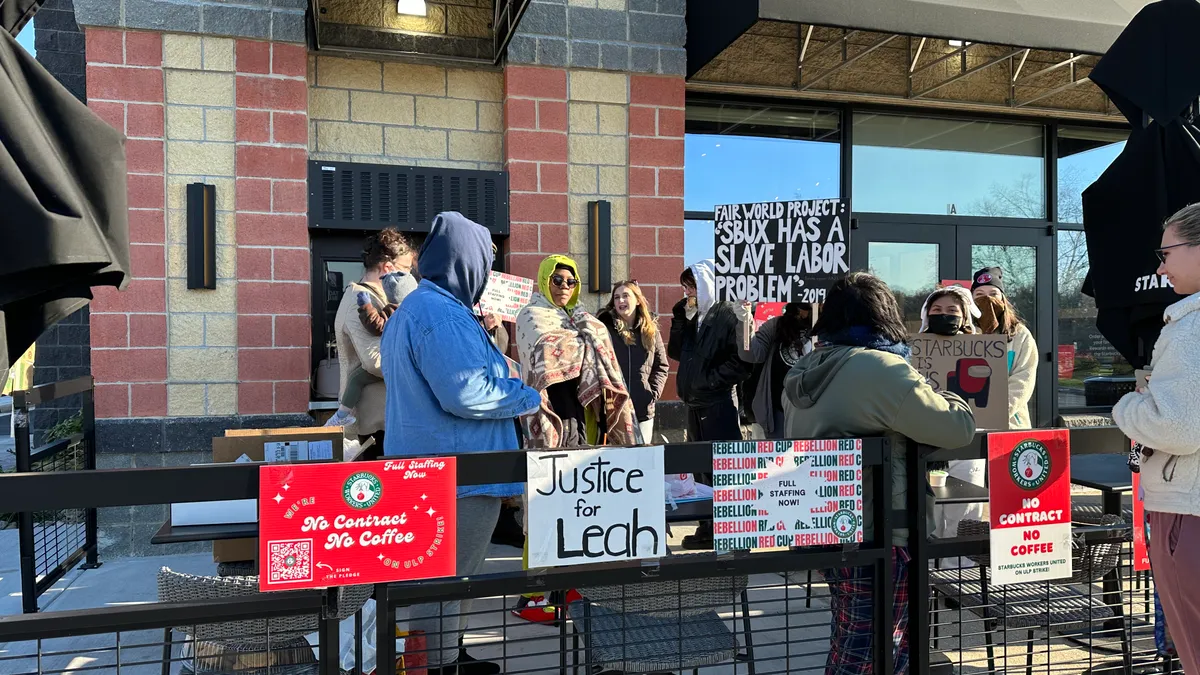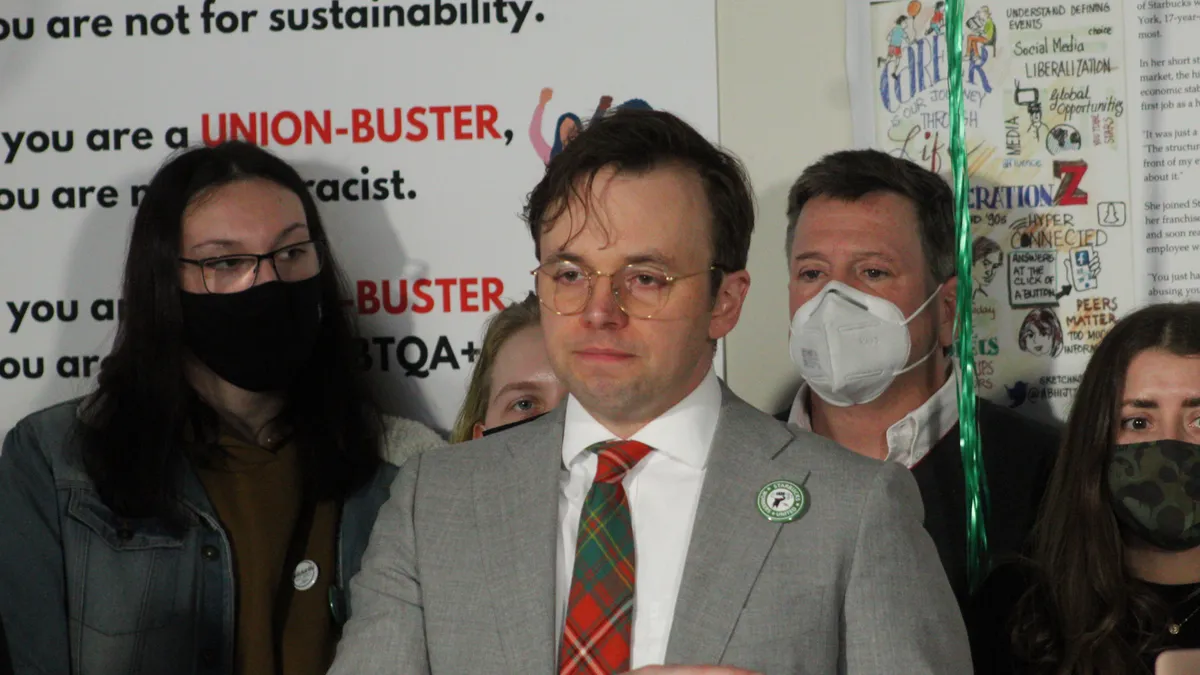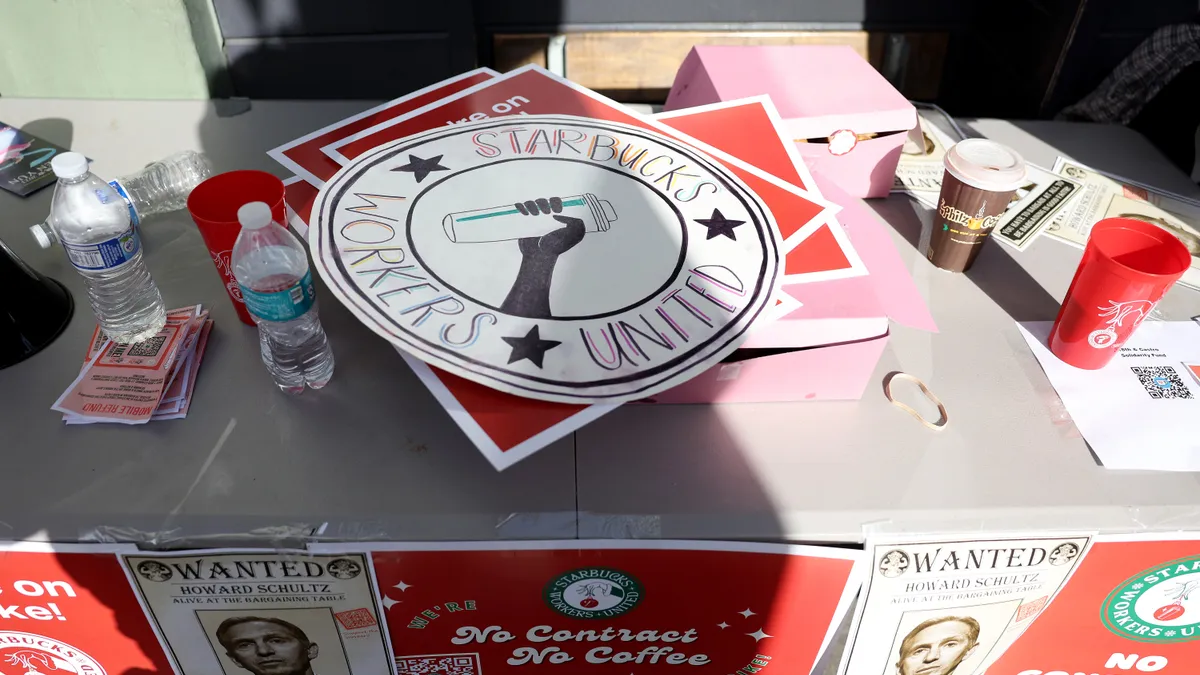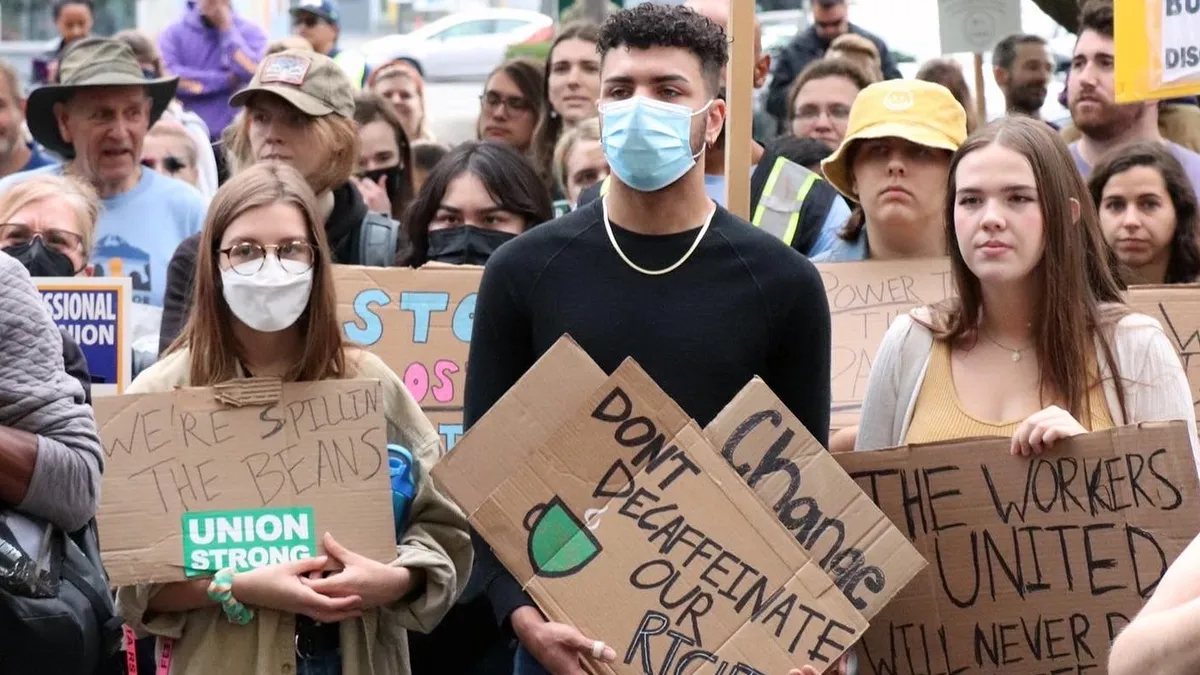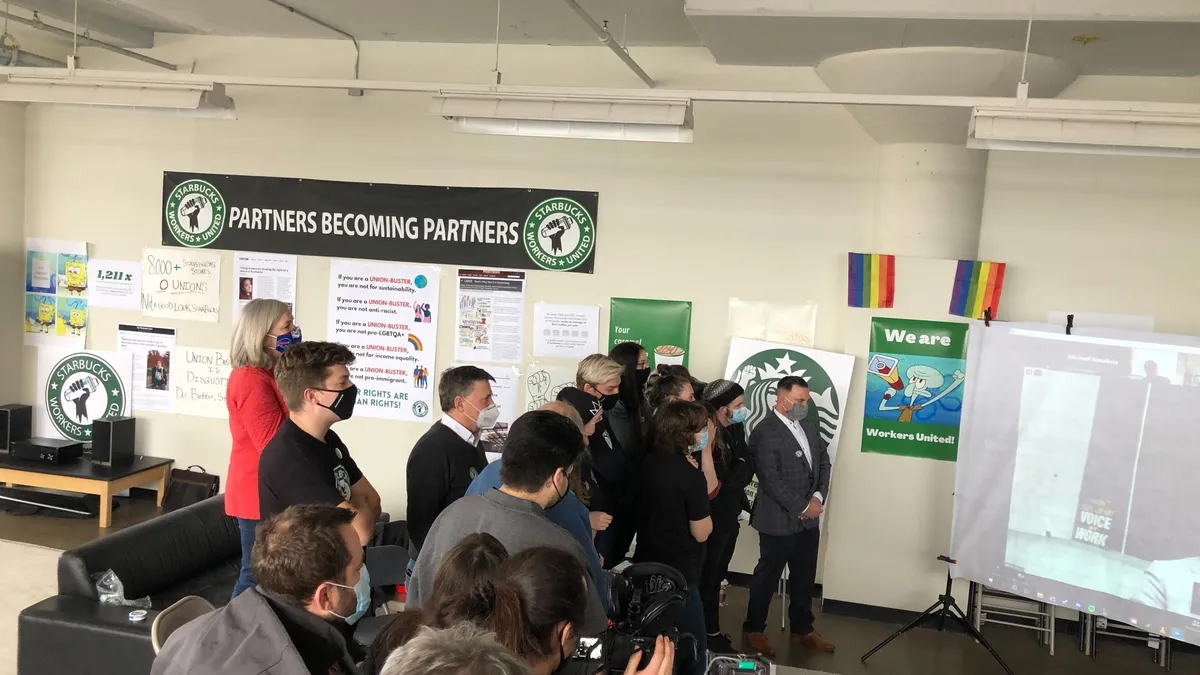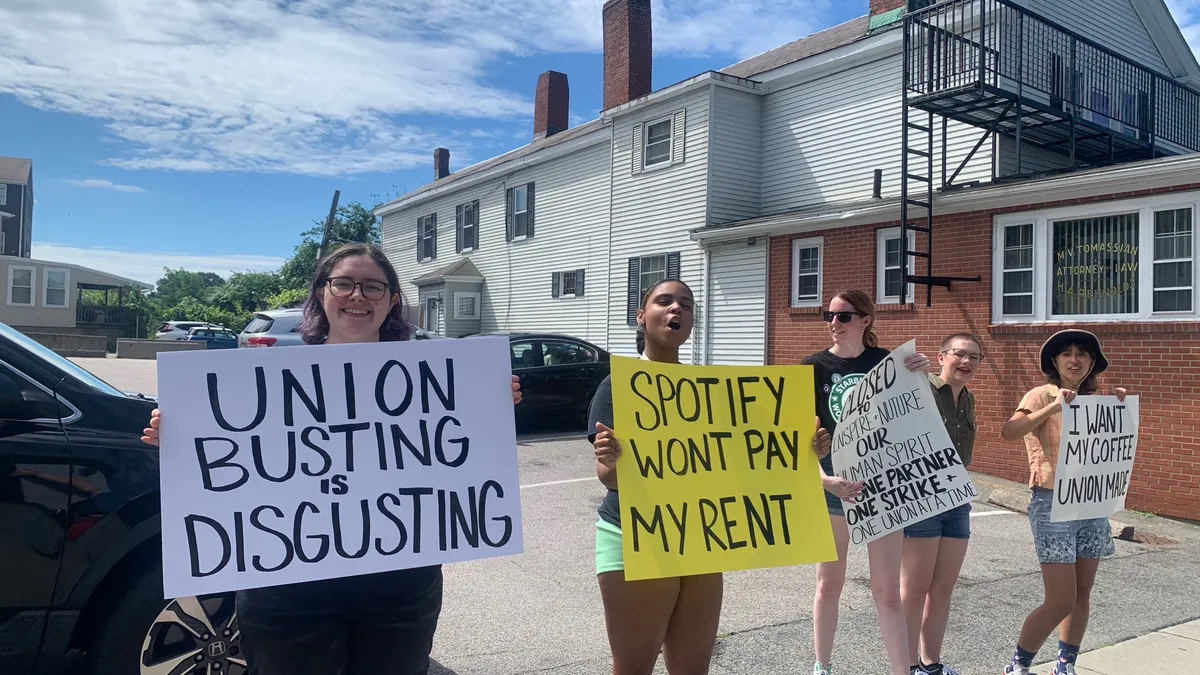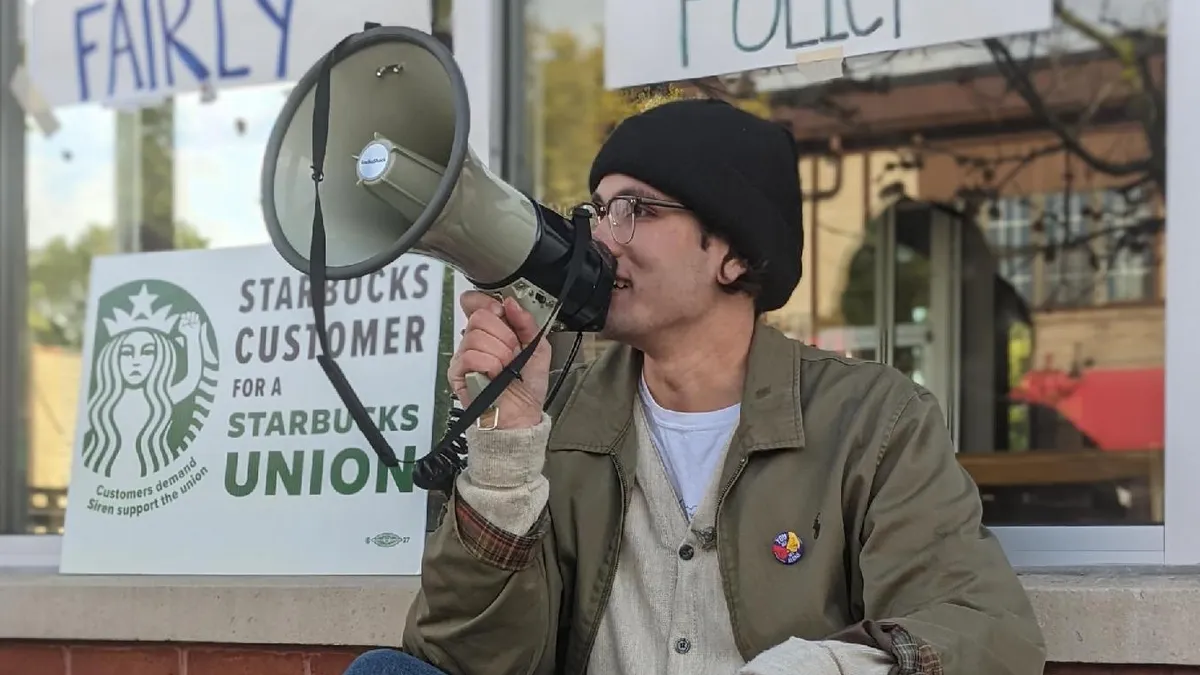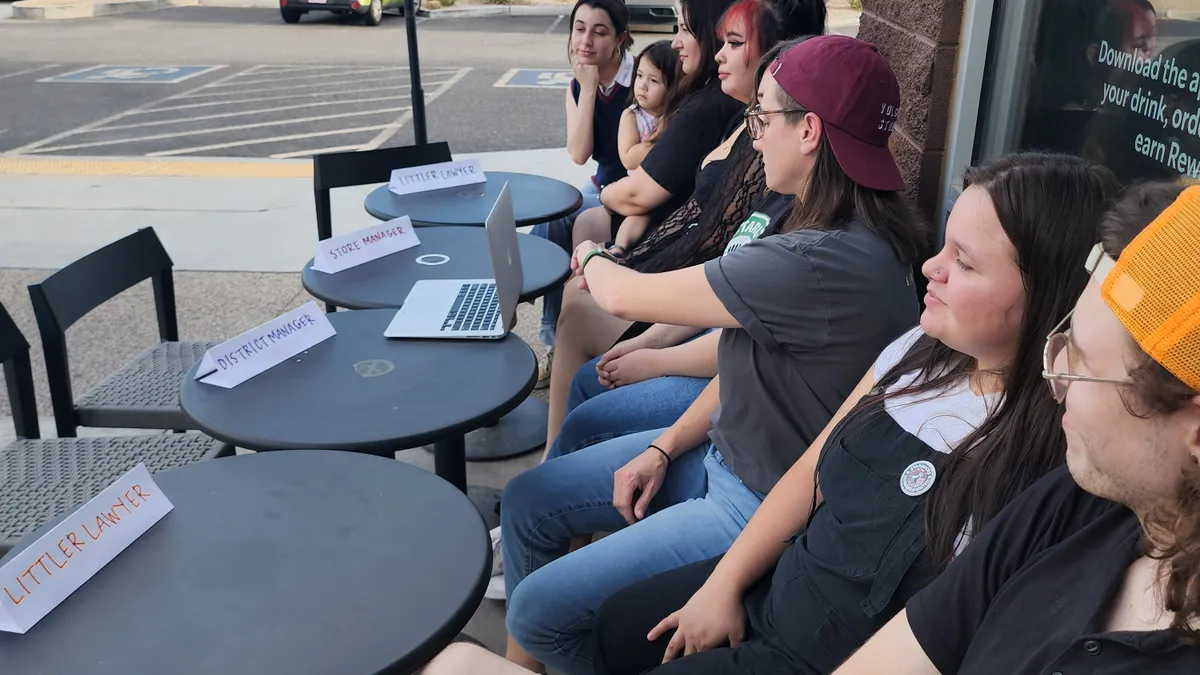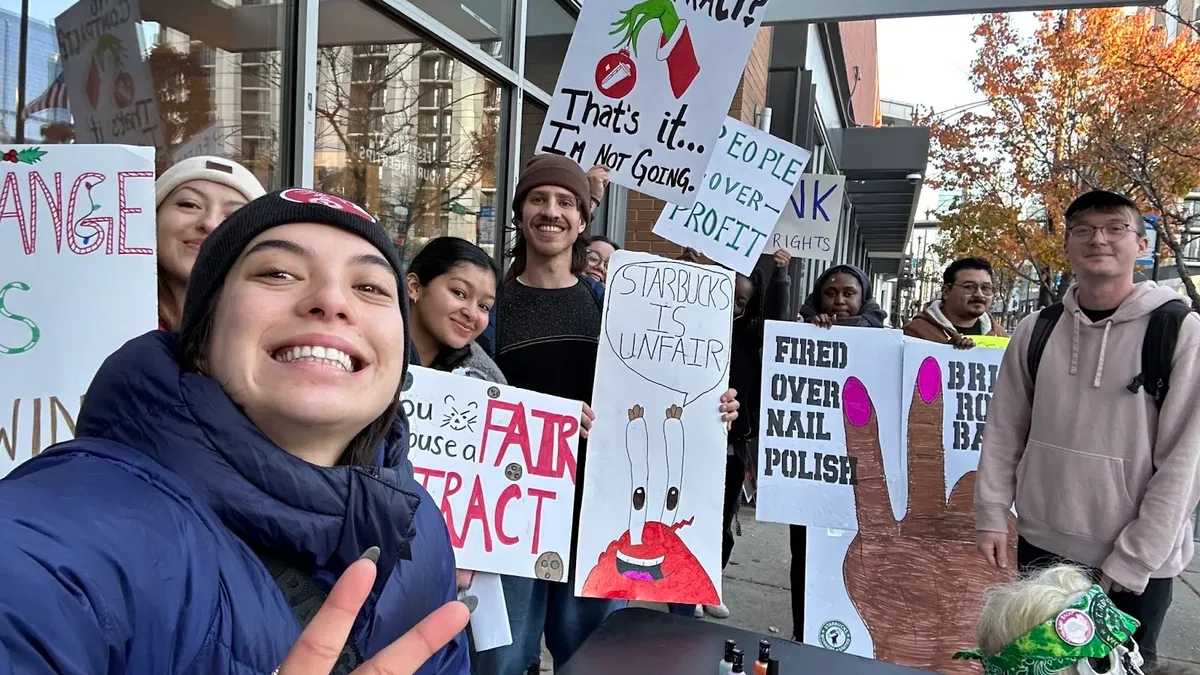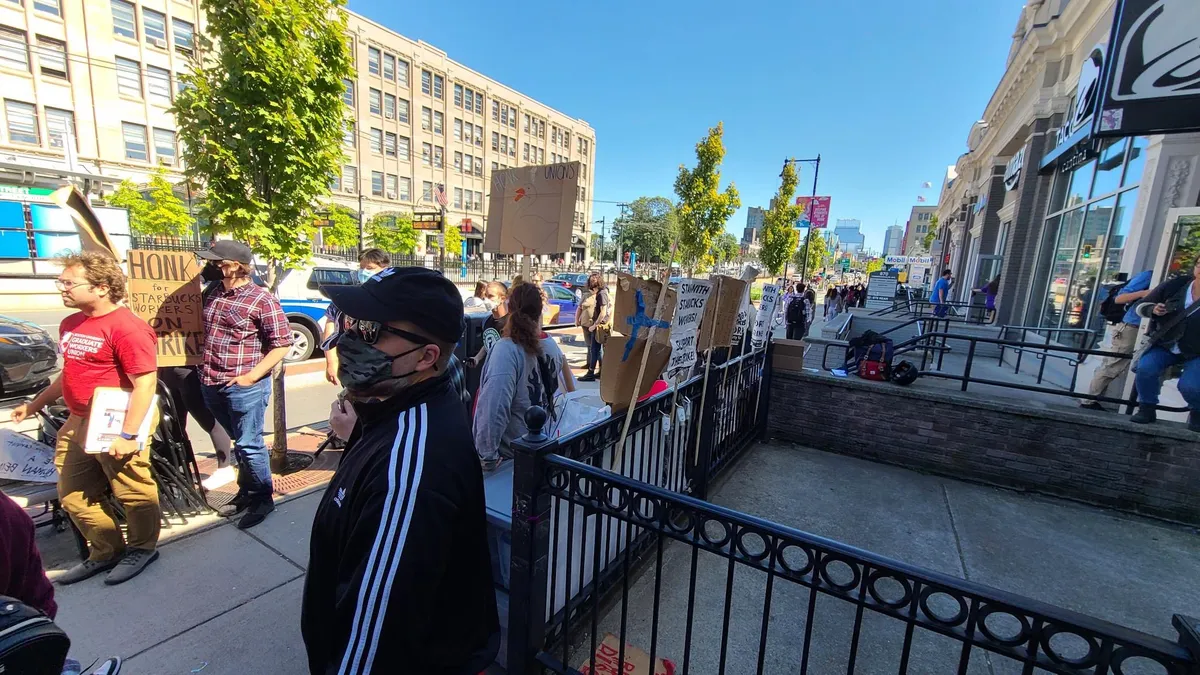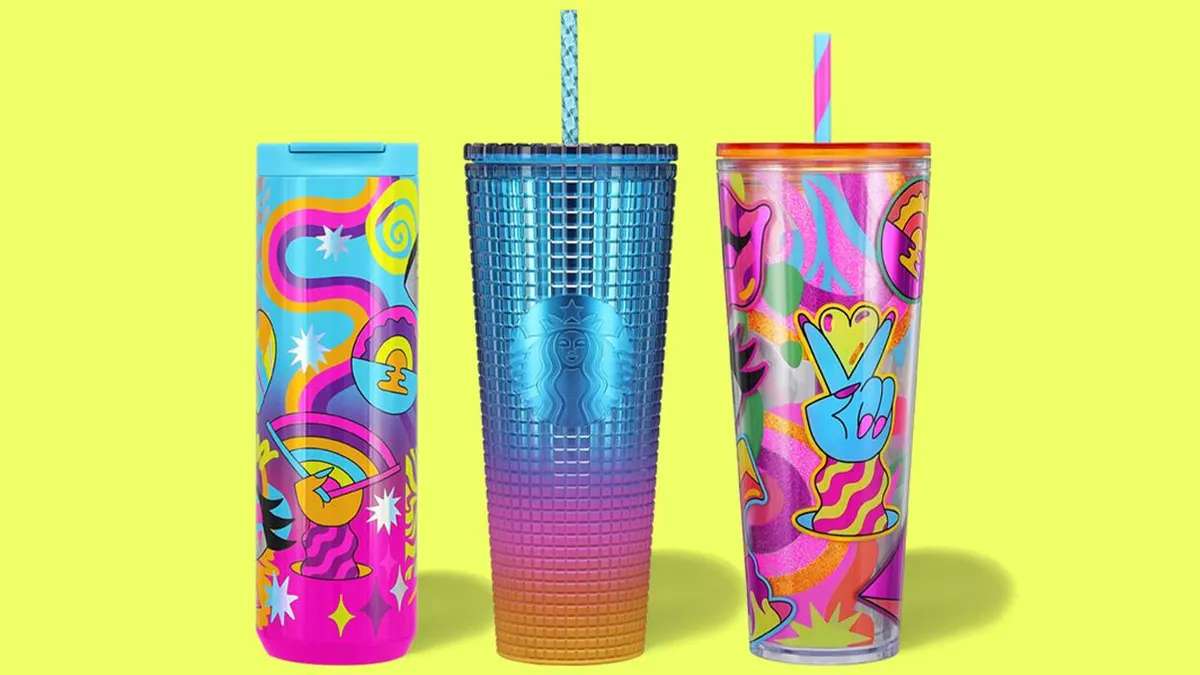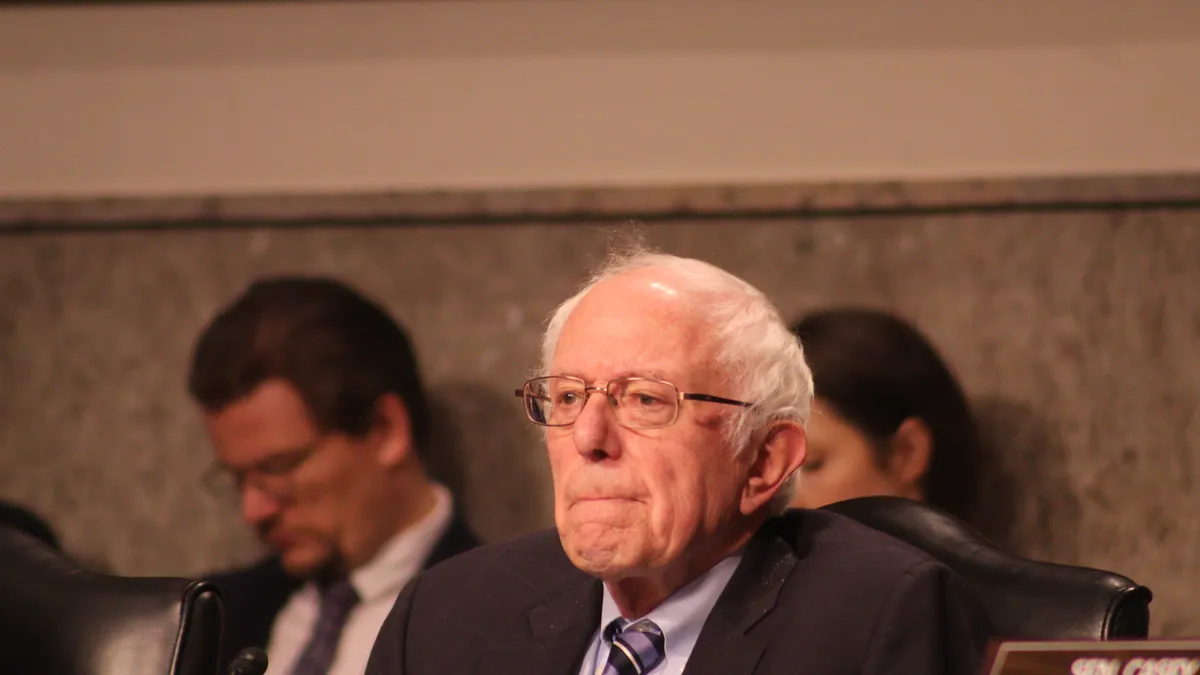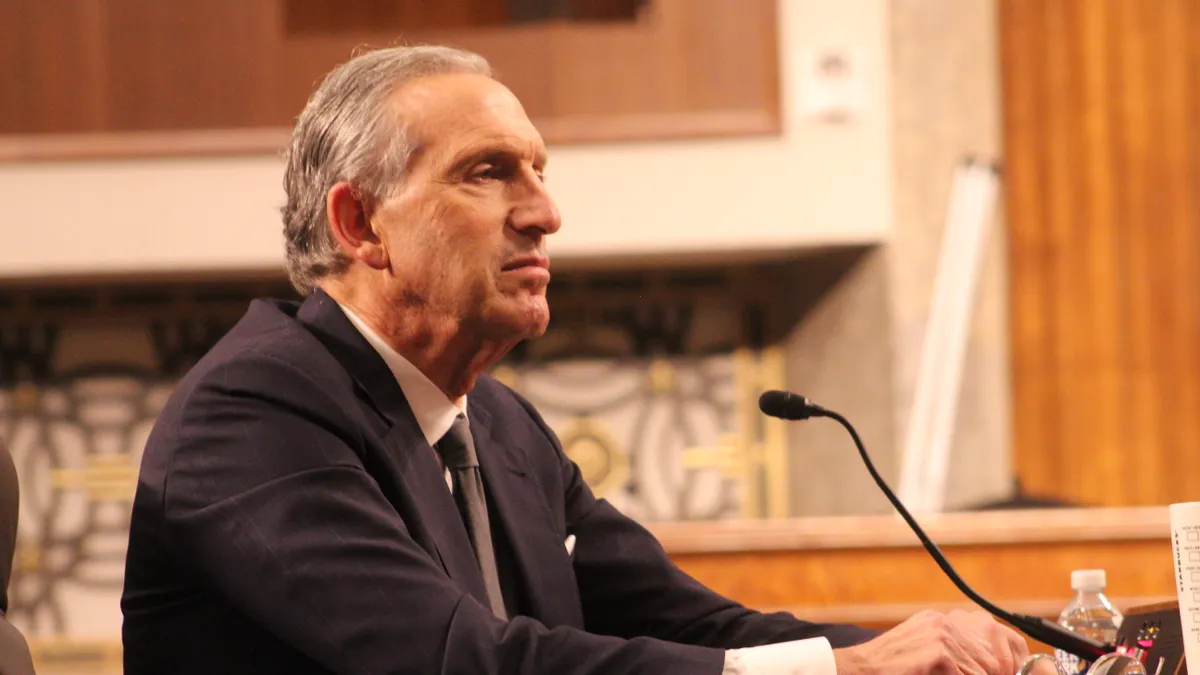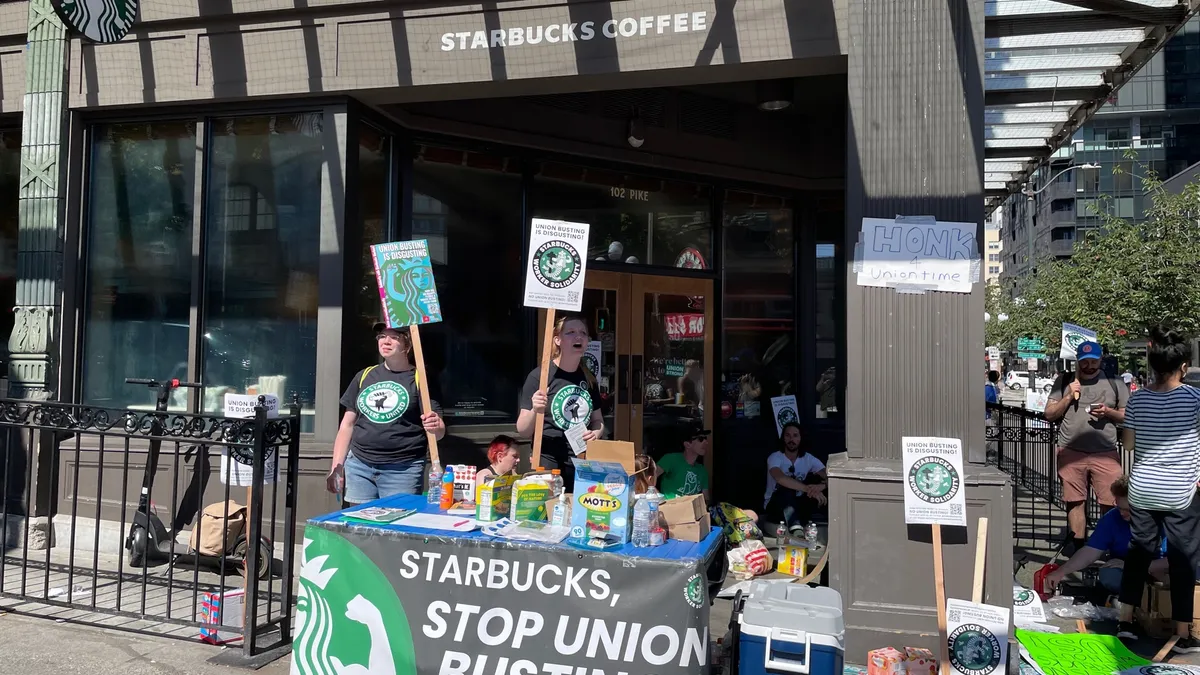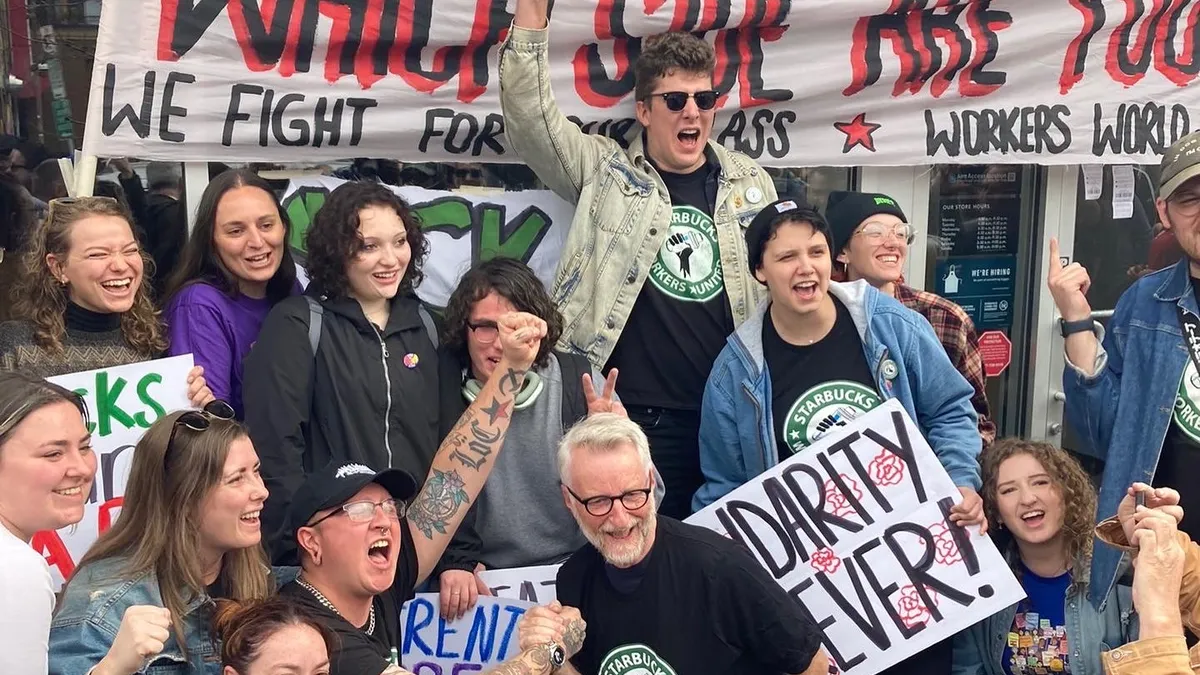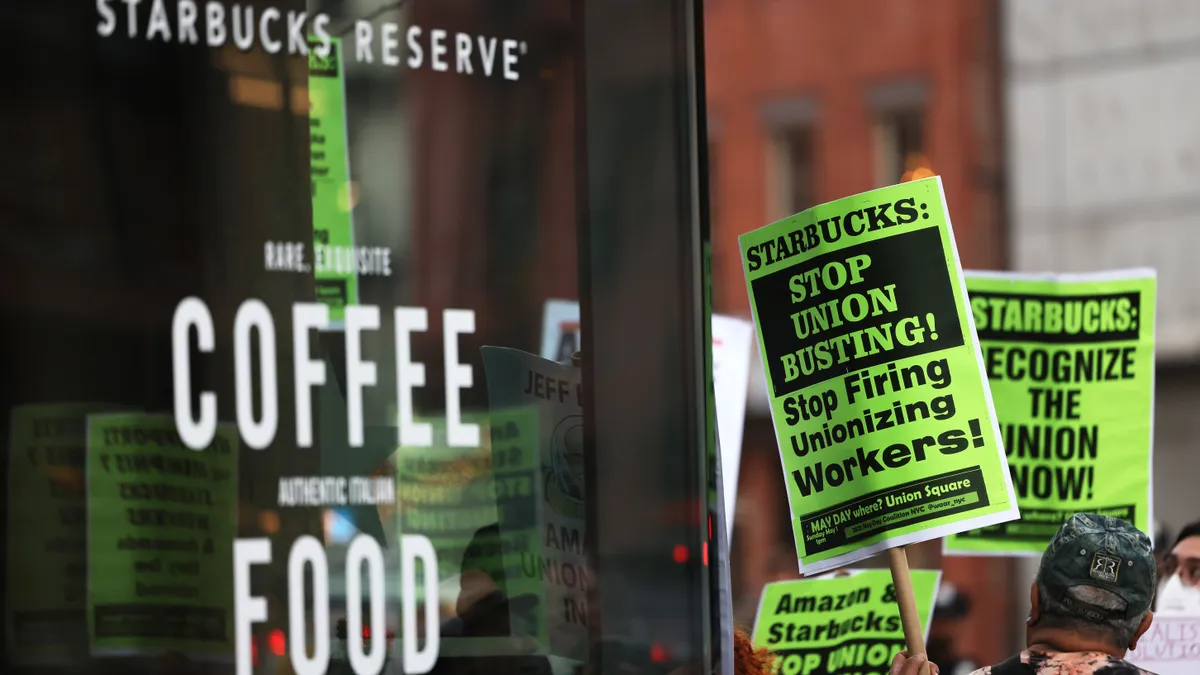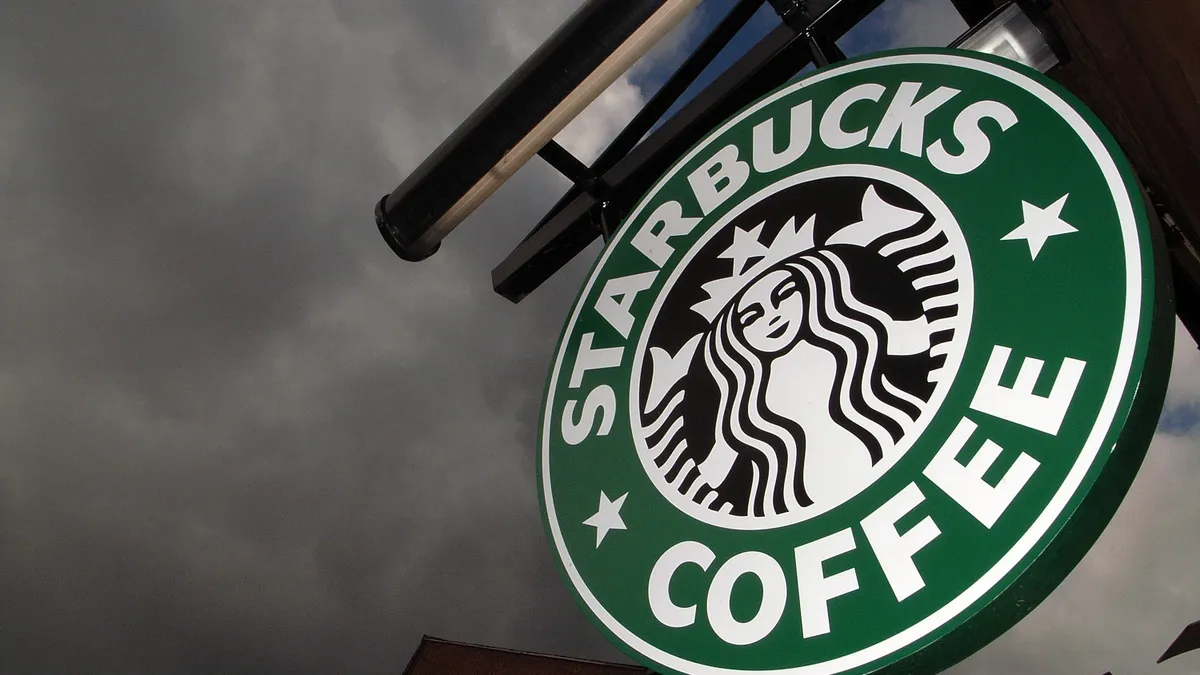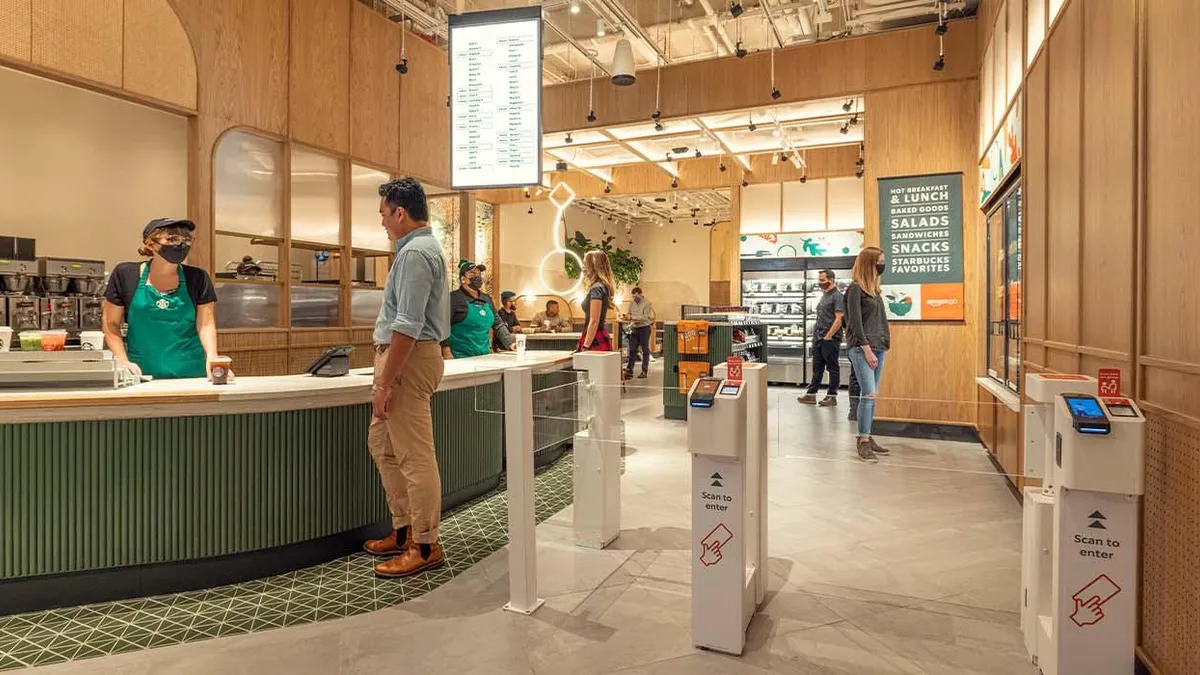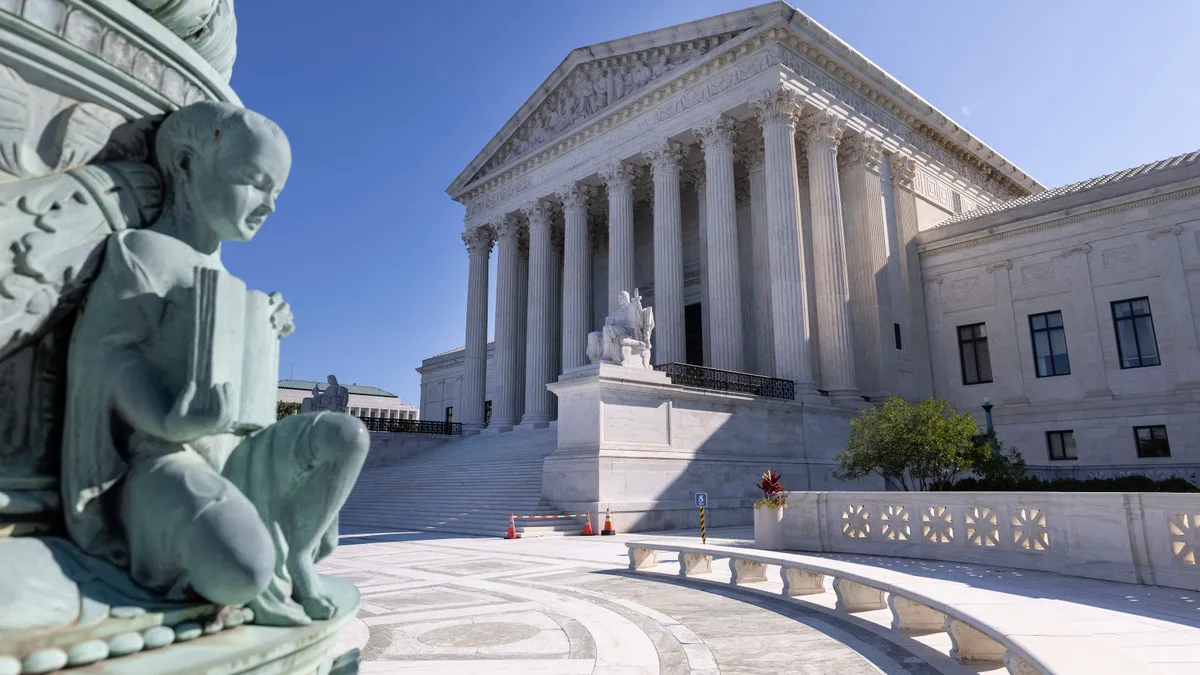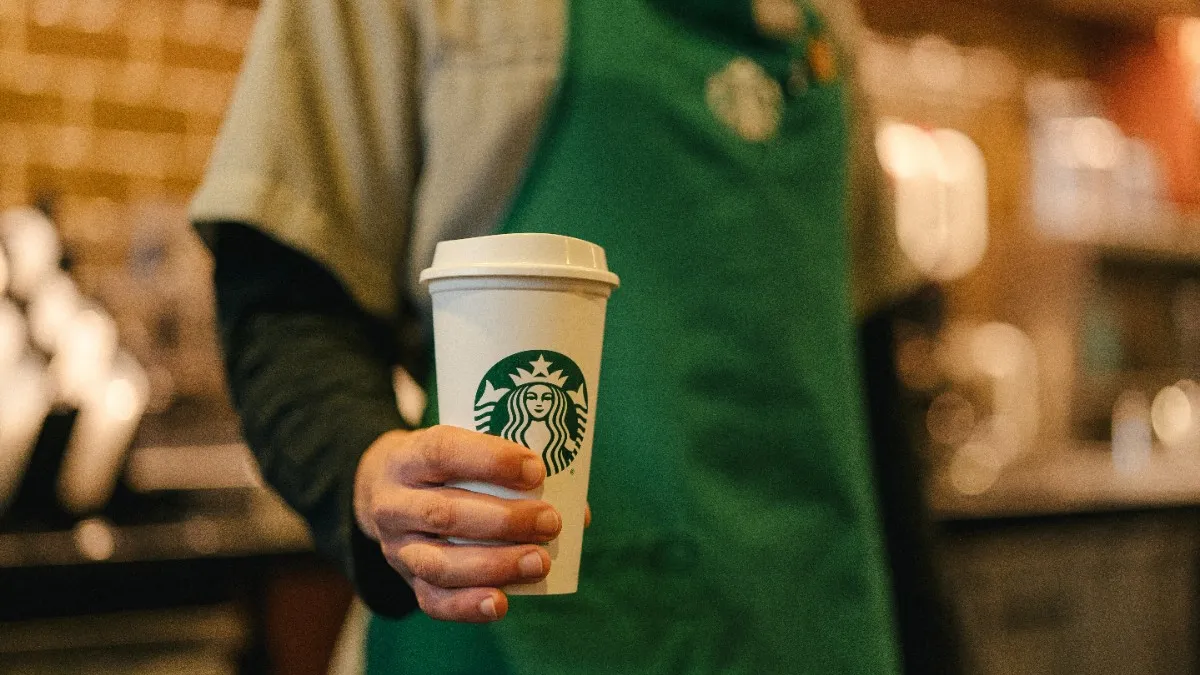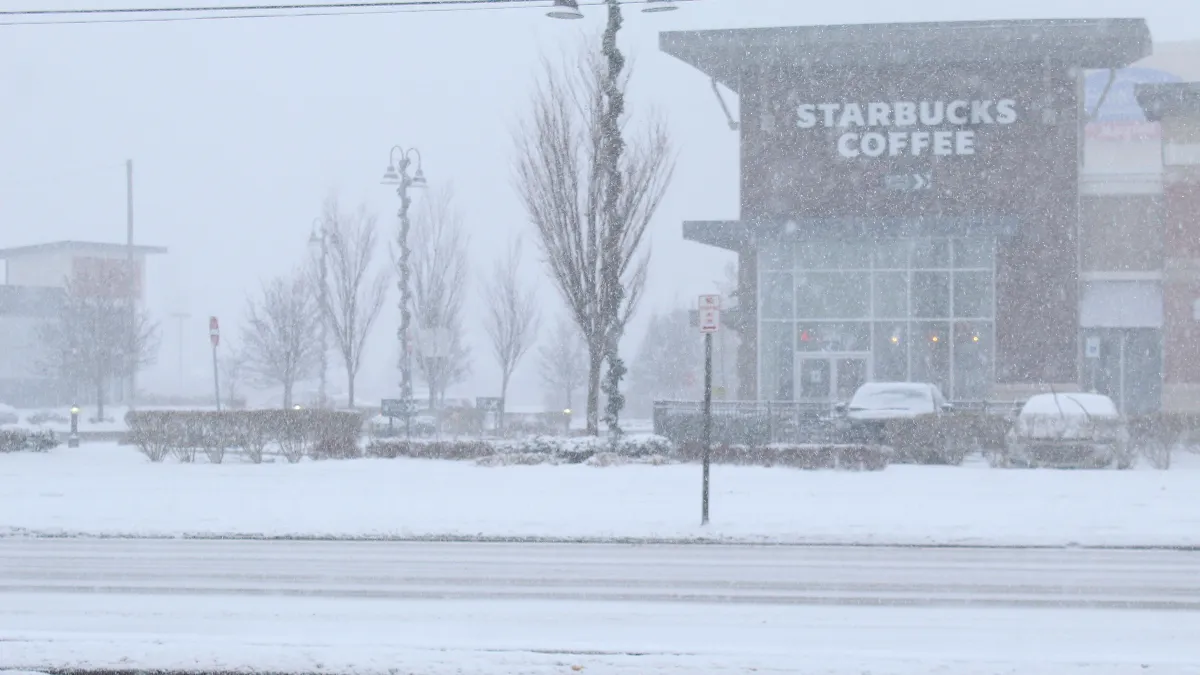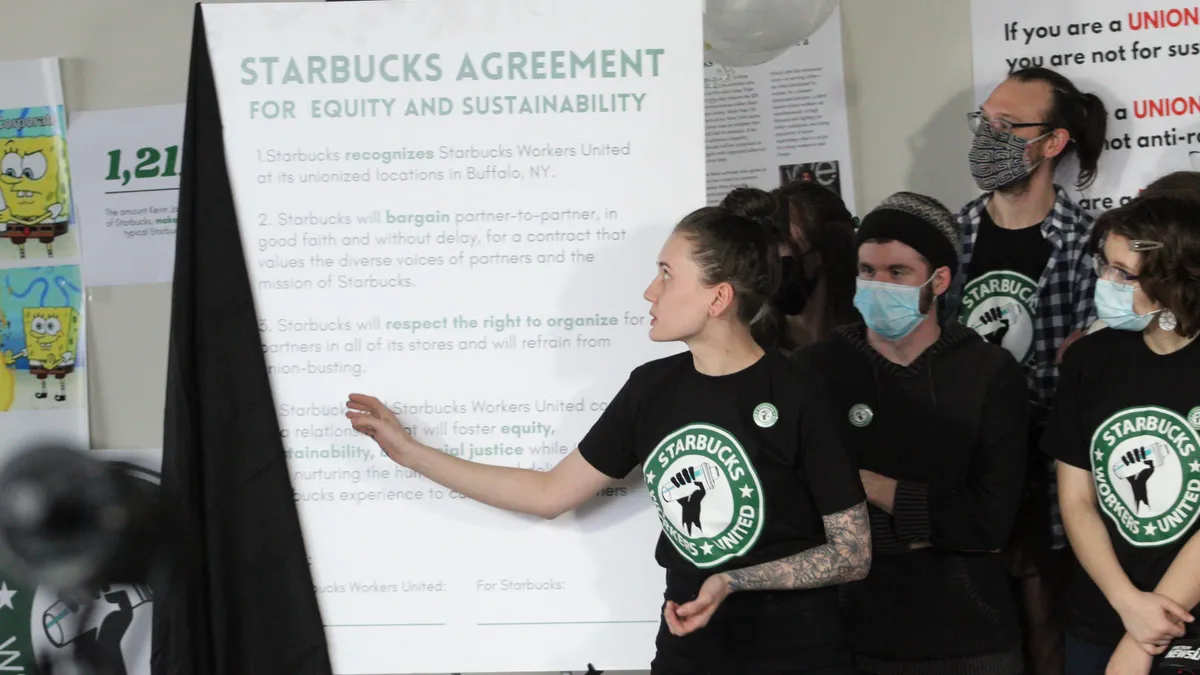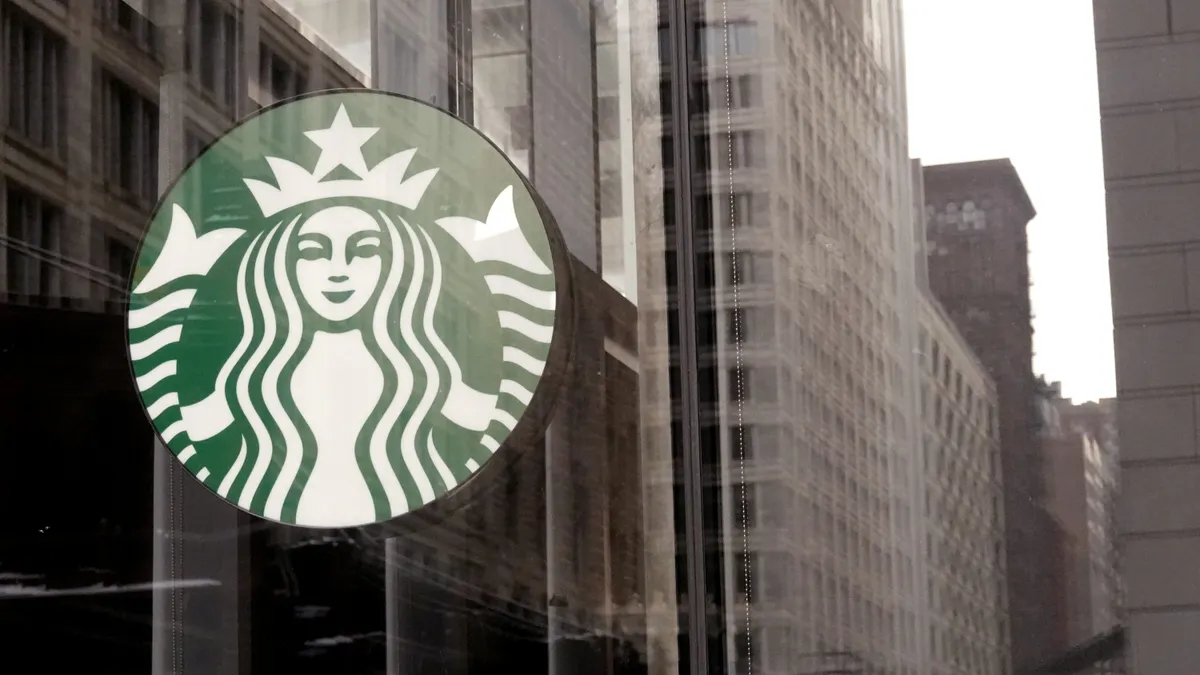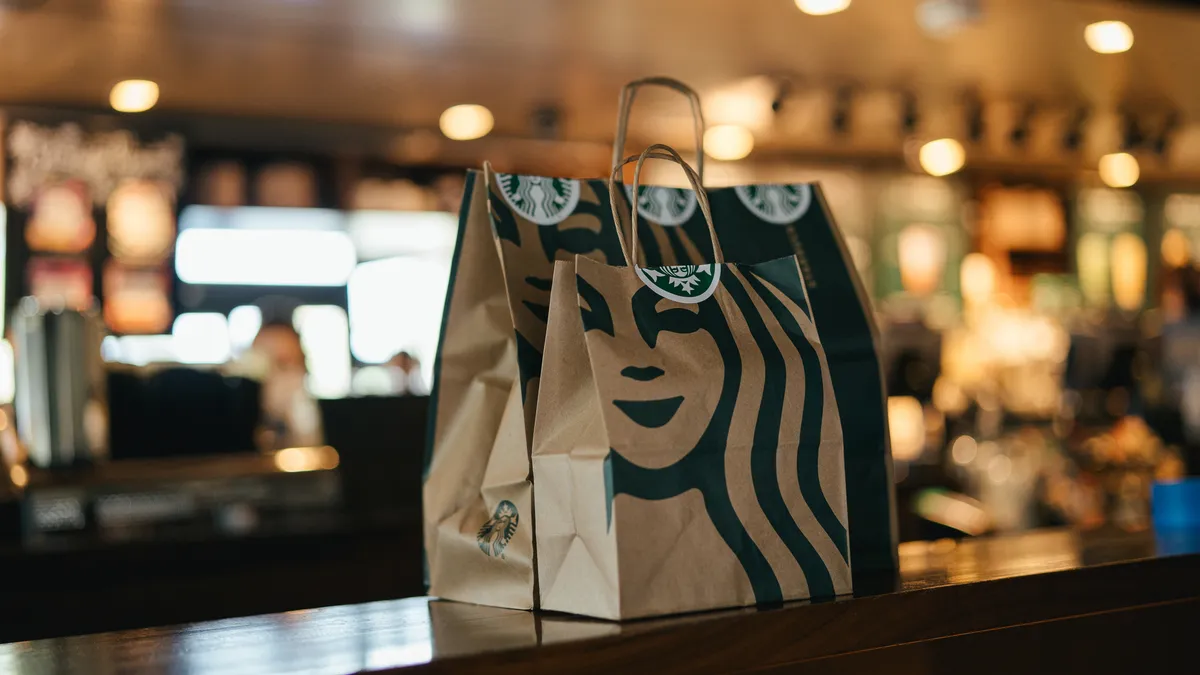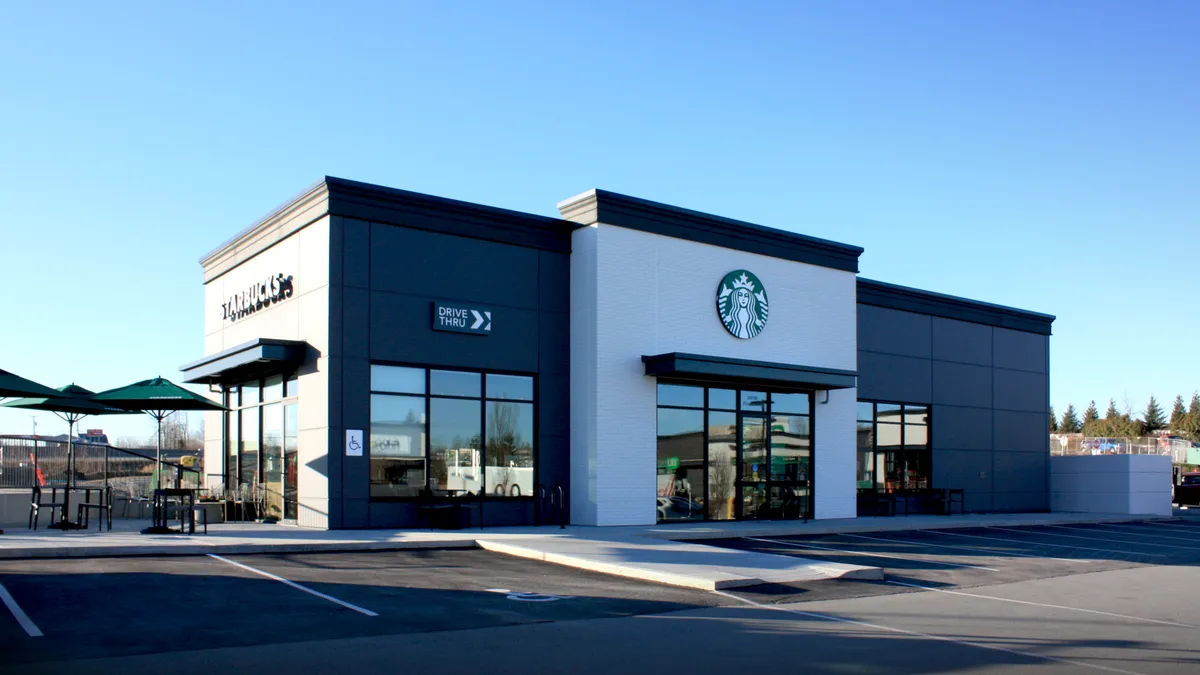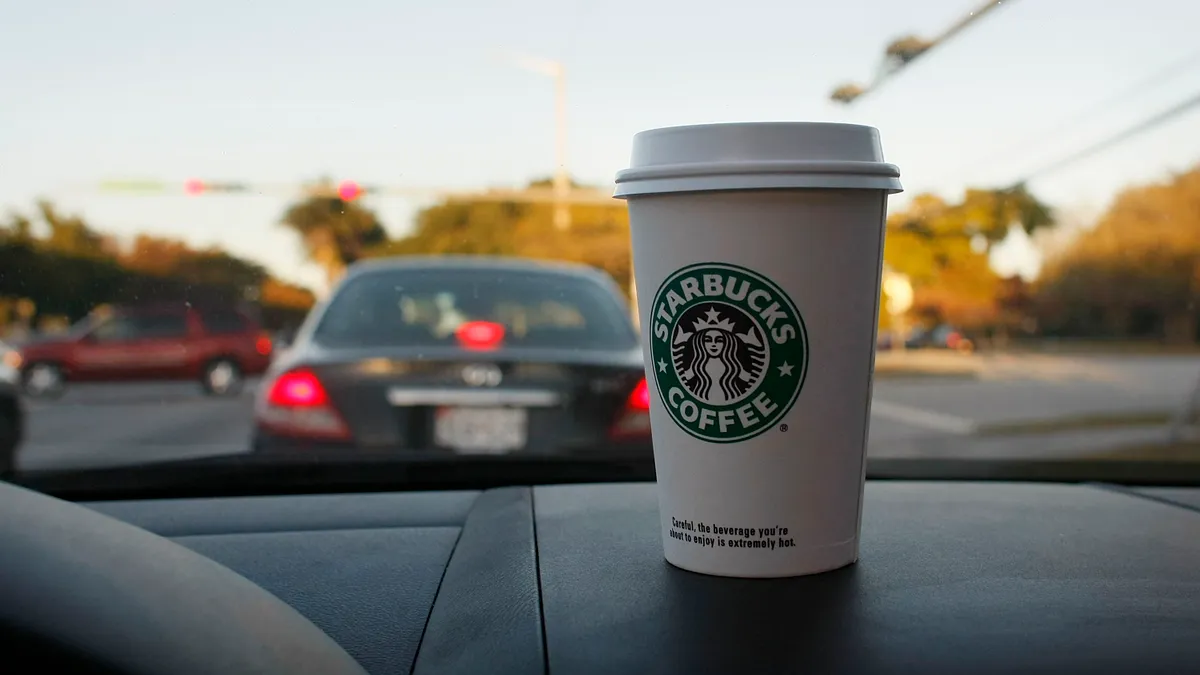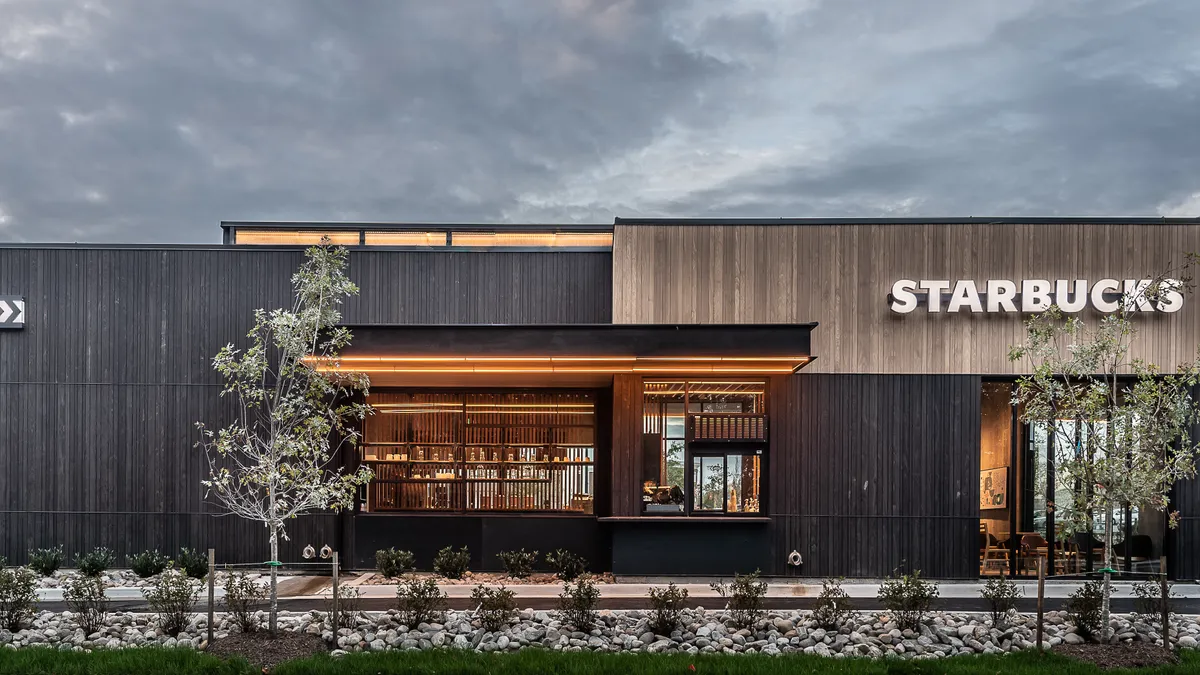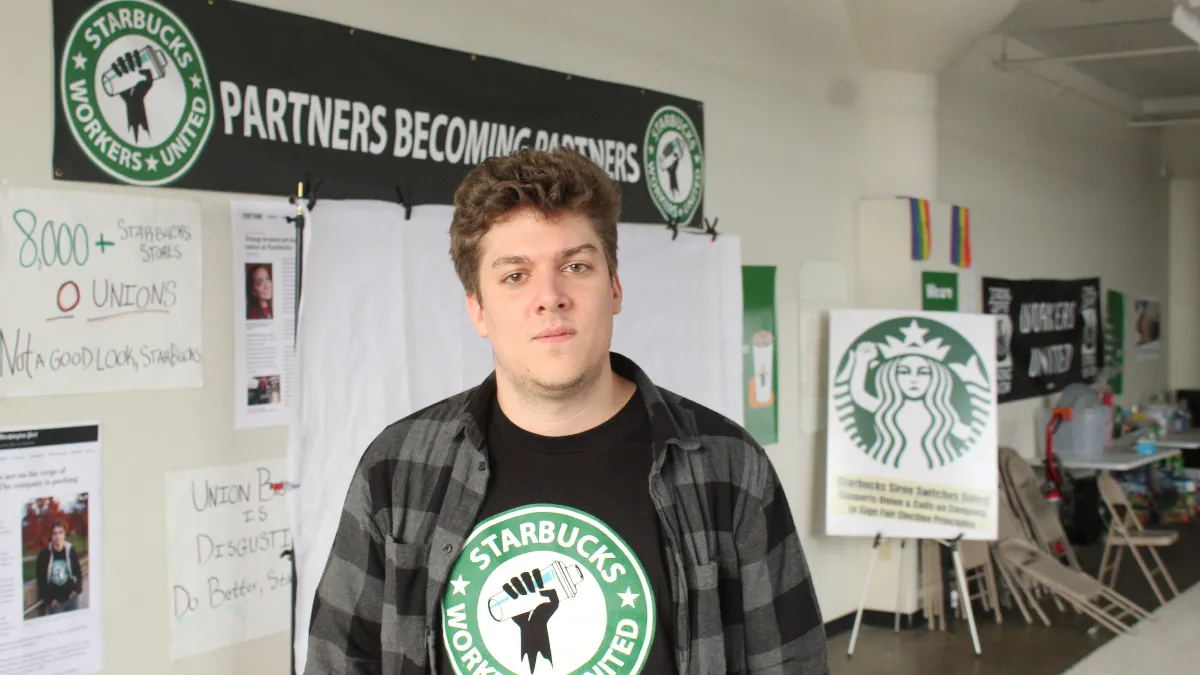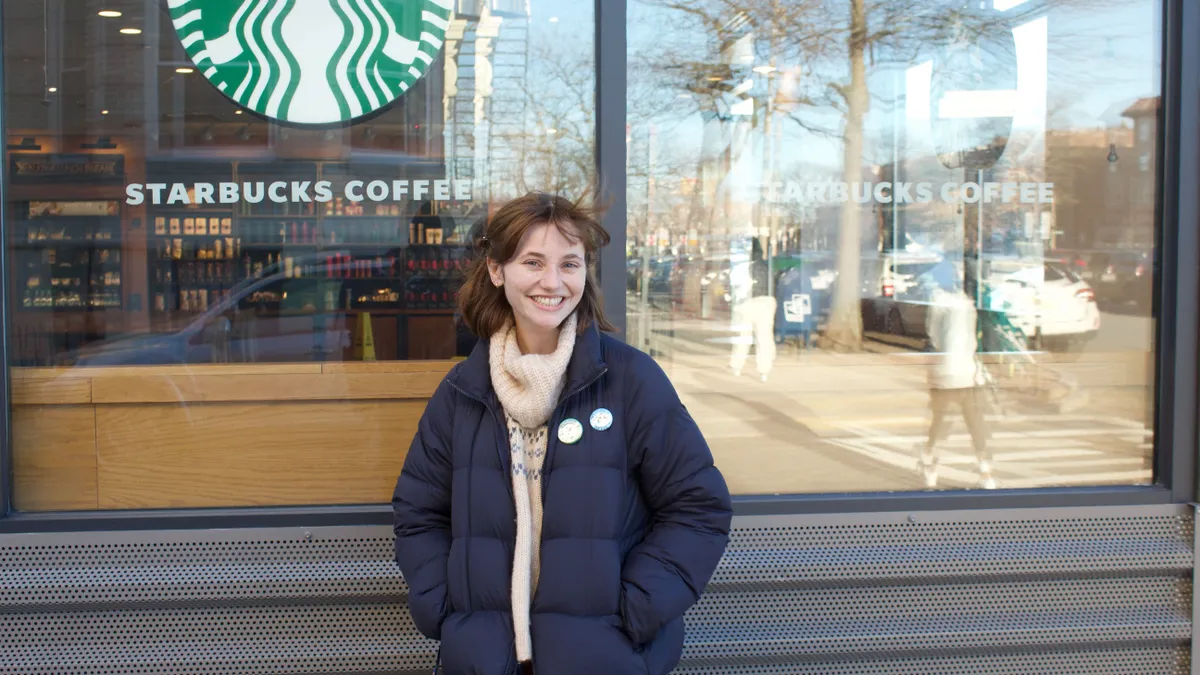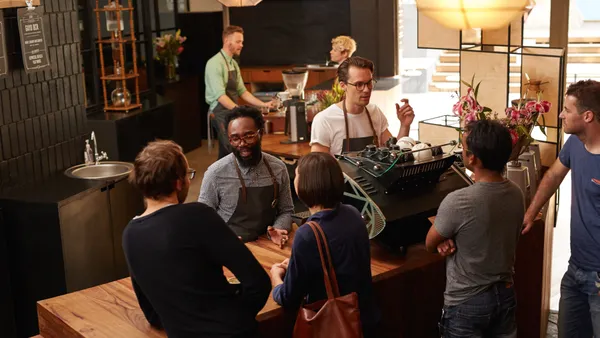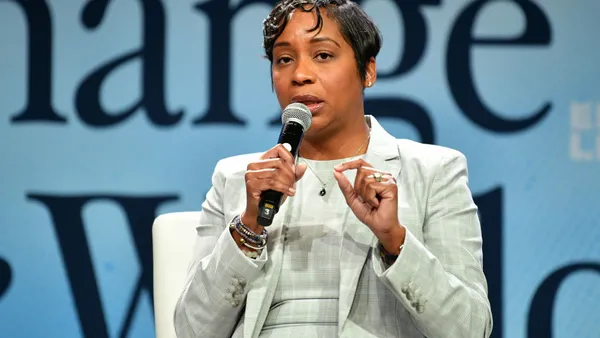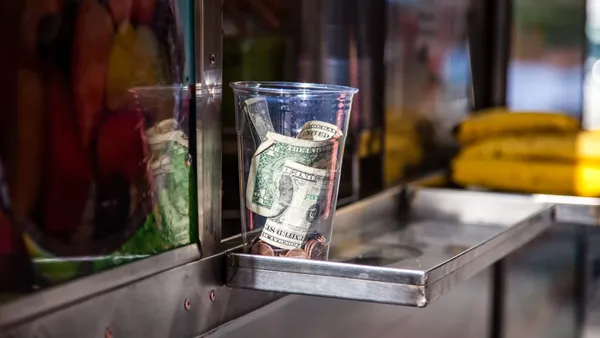Dive Brief:
- Starbucks Workers United members at a number of stores in Los Angeles, Chicago and Seattle are set to strike Friday in the first wave of actions in an escalating, multi-day strike, the union announced Thursday night.
- The union called the strike in response to outstanding unfair labor practices, with the aim of forcing Starbucks to offer raises at the bargaining table. At a bargaining session this month “Starbucks proposed an economic package with no new wage increases for union baristas now and a guarantee of only 1.5% in future years,” the union said in a press release.
- Between Friday and Christmas Eve, the number of stores on strike will increase daily unless the company returns to the bargaining table. The union said in a statement that hundreds of the roughly 535 stores it represents could be impacted.
Dive Insight:
The strikes follow a period of relative calm that began with a framework agreement in February over bargaining issues between the company and the union. The strikes are timed to coincide with busy holiday days, and come after several quarters of falling same-store sales at Starbucks in the United States.
While significant in timing and scale, the actions are in keeping with Starbucks Workers United’s tradition of demonstrative strikes of limited duration. But an escalating strike will test the union’s mobilization skills.
Starbucks Workers United has said since April that it has bargaining representatives from each store who are elected by their co-workers. That bargaining assembly structure, in theory, means the union has a representative who can communicate priorities at the store level. But it is one thing to discuss bargaining updates with co-workers and another to organize workers in strike actions.
“Nobody wants to strike. It’s a last resort, but Starbucks has broken its promise to thousands of baristas and left us with no choice,” Fatemeh Alhadjaboodi, a Texas barista and bargaining delegate, said in a statement.
Michelle Eisen, a barista at the first unionized Starbucks in Buffalo, New York, said the company has spent millions of dollars to bring in executive talent in 2024, but that hasn’t been reflected in its commitment to hourly workers. Eisen said Starbucks’ readiness to bargain seemed to falter after Niccol joined the company.
“In October, we were ready to exchange comprehensive economic proposals. In October, November, and December, Starbucks failed to bring viable economic proposals to the table that included real investment in baristas. This is backtracking on months and months of progress,” Eisen said in the statement.
On a video call with supporters, Starbucks Workers United members said a bargaining session this week fell apart over the company’s wage proposals. The union said Starbucks offered no immediate raise and less than 2% in future years. Year-over-year, the consumer price index is up 2.7%; wage growth below that rate would represent a decrease in real terms.
Starbucks blamed the union for the failure of bargaining.
“Workers United delegates prematurely ended our bargaining session this week,” said Phil Gee, a spokesperson for the company. “It is disappointing they didn’t return to the table given the progress we’ve made to date. Since April we’ve held more than nine bargaining sessions over 20 days. We’ve reached over thirty (30) meaningful agreements.”
Gee also highlighted the company’s wages and benefits, which tend to be better than other fast food chains. Earlier this week, Starbucks announced it would double the amount of paid leave offered to parents, and tripled the paid leave offered to birth mothers.
On the call with supporters, union members said the company’s recent expansion of parental leave was identical to the union’s stance on parental leave in earlier bargaining sessions. Starbucks has several times appeared to implement benefits based on union demands, like credit card tipping.



